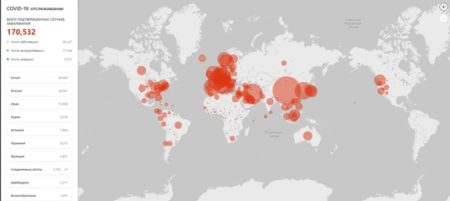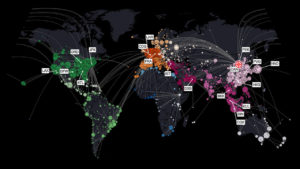
How Big Data Analytics Services Can Save the Day During the Coronavirus Pandemic
The Coronavirus pandemic has spread across 123 countries with the global death toll rising every day, the threat has hampered the regular productivity for all the industries, directly impacting the economy. The IT sector is expected to facilitate the healthcare bodies and governments of the affected countries to reach its root cause and help eliminate it. In the process of finding the blind spot of this fatal virus, technology blends like Big Data, Artificial Intelligence, and various thermal sensors are proving to be a great help.

The real problem lies as the number of infection cases is uncertain and the actual danger of the virus is still unknown. However, a key contribution to support coronavirus epidemiological experts could come from big data analysis techniques.
Big Data Proved itself during the Cholera Outbreak of 1854
Data analysis gives an in-depth understanding of the details of the environment and how things are made. This wouldn’t be the first time when pioneers of data science can help epidemiological experts; in 1854, during the Cholera outbreak in London, John Snow, one of the first data-driven epidemiologists made a significant change in the course of the spread of the fatal disease. The data scientists geospatially analyzed the deaths that occurred in London due to cholera and found the root cause of the disease which ultimately helped in demolishing the epidemic.
Data-driven Insights can Analyze Infected People
Big data helps in analyzing the trends and future progress and the same can be applied in the health sector. There are several data-driven epidemiological models that can figure the theoretical number of people infected suffering from contagious illness in a closed population at a given time. The model uses coupled equations that compute the number of vulnerable people, the number of people infected, and the number of people who have recovered.
Big data and AI can help computing in compliance with quarantine while Machine Learning can be equipped for drug research. Drones equipped with smart cameras and scanners allow easy detection of those who do not obey quarantine measures. The use of intelligent cameras in China and Taiwan has made a huge difference by allowing intercepting people who are not complying with wearing a mask. It is also helping authorities to work on the real-time thermal scan that detects possible cases of fever.
SenseTime, a big data model made by a Chinese company scans people’s faces despite wearing a mask, while Alibaba has also created a new AI-based coronavirus diagnosis system.


